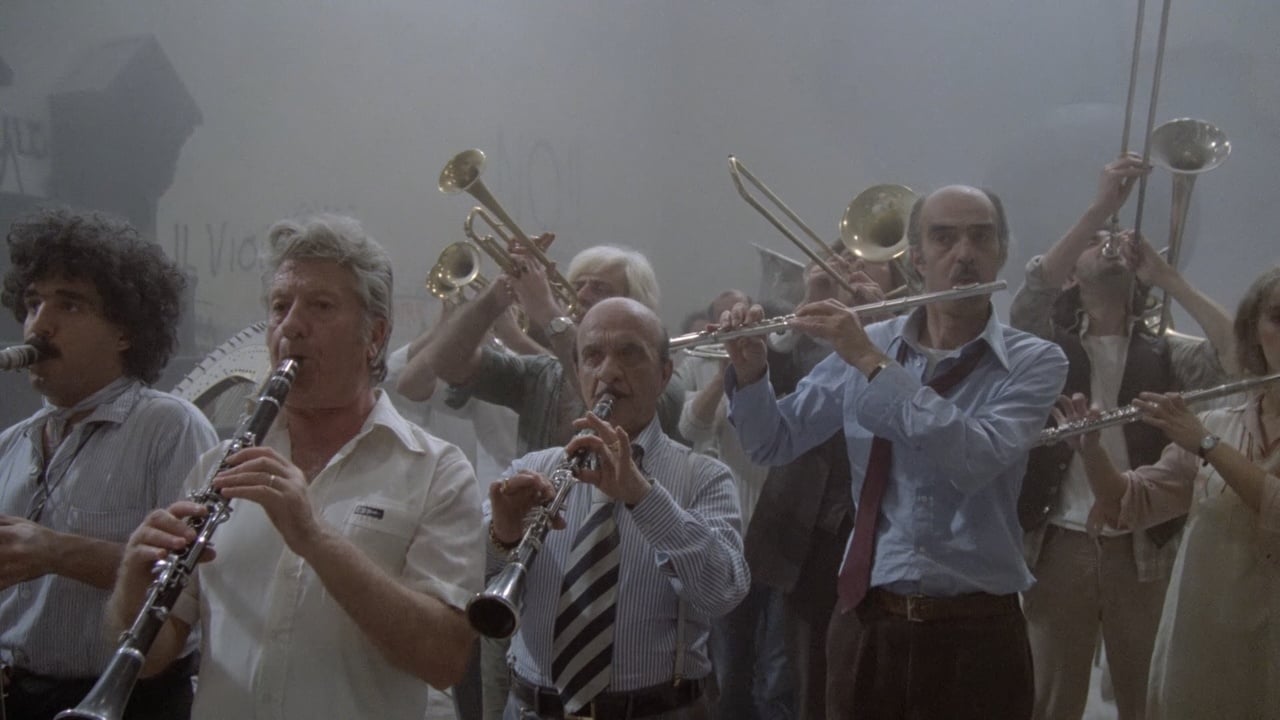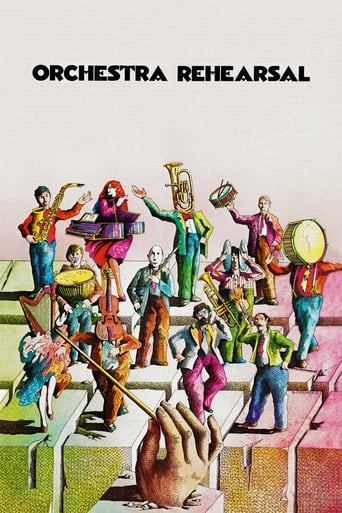



What a waste of my time!!!
It's fun, it's light, [but] it has a hard time when its tries to get heavy.
View MoreIt really made me laugh, but for some moments I was tearing up because I could relate so much.
View MoreNot sure how, but this is easily one of the best movies all summer. Multiple levels of funny, never takes itself seriously, super colorful, and creative.
View MoreThis Fellini's movie opens in a white, half-empty room. A kind, old man guides us through the history and the current purpose of the oratory until the musicians arrive. He's nostalgic of the old days of which he often speaks, comparing them to the present decay. The relationship between present and past in music is also evoked by the orchestra leader. The past is always represented as the ideal period opposed to the time infected by media. The television is there to film the orchestra rehearsals: musicians are asked to talk about themselves: it's beautiful how each one of them remembers their encounter with music and the instrument they're playing. The characters are all unique: they have different stories to tell but they share the same passion. Everyone wants to impose the importance of its own instrument without realizing that magic is accomplished with the presence of every single one together. The orchestra leader complains about the public who, in his opinion, is unable to understand music, or art in general. Like T.S. Eliot's line "the women come and go talking of Michelangelo", the orchestra leader expresses his dissatisfaction with the public. The second half of the movie is an act of rebellion where the musicians refuse the orchestra leader's role. The seizure of power doesn't last very long: they end up destroying and ruining the oratory. The orchestra leader takes control of the situation and when everything seems to be back to its own harmony, the sound of disappointment echoes in the dust of the room.The music of the movie is sublime, composed by the incomparable Nino Rota. The acting is simple but pure and it perfectly reaches Fellini's intent.
View MoreA rare jewel in Fellini's filmography.While the unchained genius who broke off with Neorealism to build up his own personal brand of art reaches such absolute heights of delirium as in "Satyricon", "Casanova" or "E la nave va", here he is grave, pondered, sober, using a very fine irony to cast on his message about human society.One can relate this movie rather to "I Clowns", "Roma" and "Amarcord". Splendid in everything, and deeply permeated by the Great Federico's bright mind. Some people go even to declare it the best Fellini ever - and it wouldn't be too easy to contradict them!
View MoreIt is rather neglected a movie by Fellini, but I agree with those who see it as a 'metaphor' of the Italian society; not of the Italian society in general, but of the Italian society at the end of the '70s. After 1968, there was turmoil in the country and the artist's message is quite clear, apparently: prolonged social strife can lead to dictatorial outcomes. The message is not so clear at the beginning of the film and it might be seen as a sort of a 'documentary', but when that huge stone 'ball' starts pounding on the building where the 'orchestra' are rehearsing and a faraway voice starts becoming more and more clear and strong, Fellini's message becomes obvious.
View MoreFellini's "Prova d'orchestra" was originally made for television, and there it should have stayed. As a cinematic event, it does not deliver. Yes, it's well directed and nicely acted, it has an interesting idea in it, but it's not enough for me to enjoy it. Eventually it looks like an exercise by some cinema student and not like a piece by Fellini, one of a few cinema genius of our time. I was disappointed, even though I enjoyed parts of it. My Grade: *** (out of *****)
View More